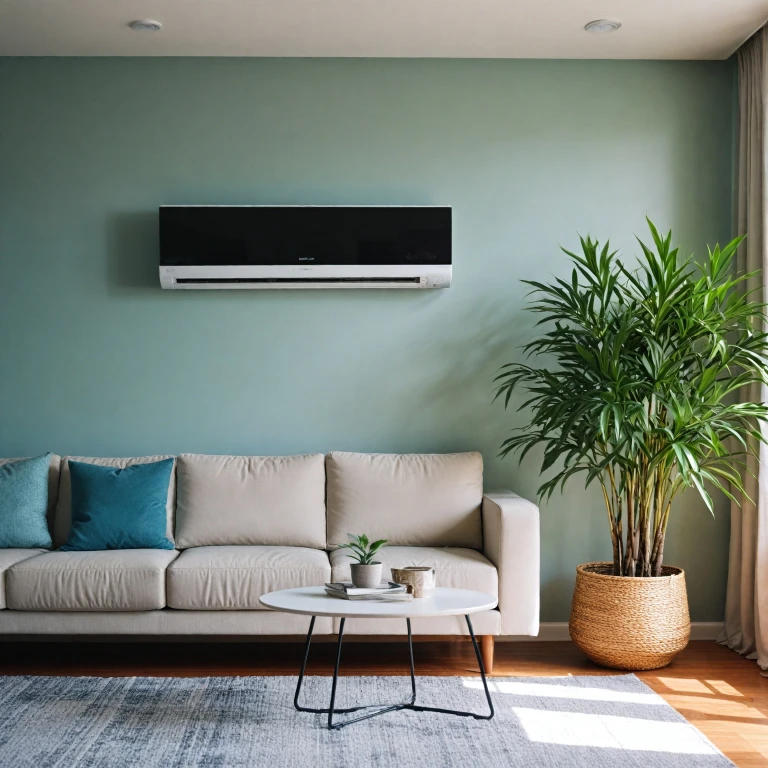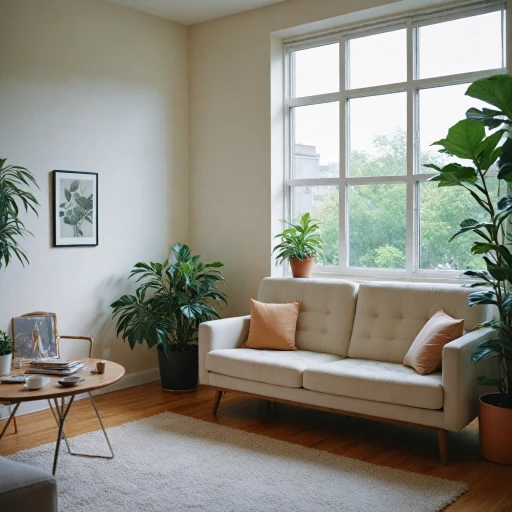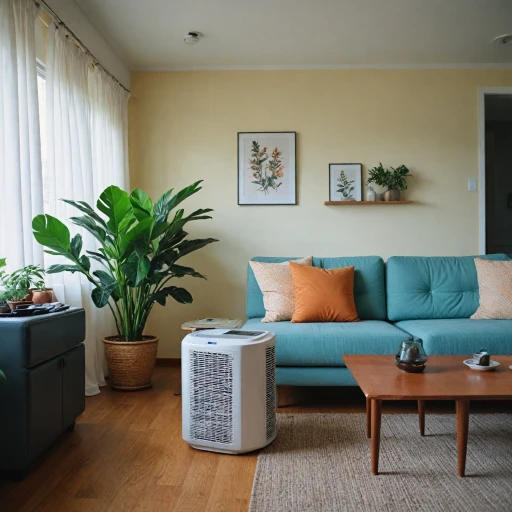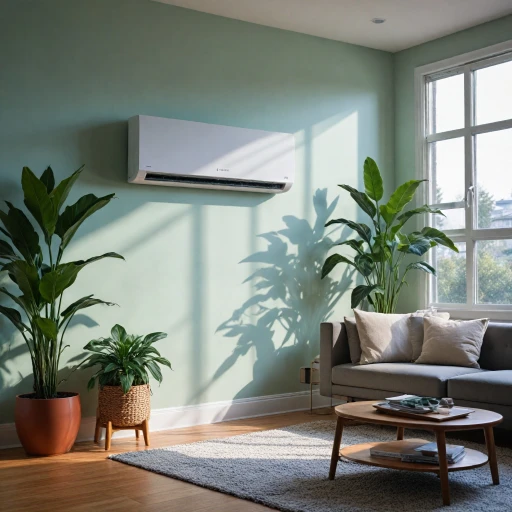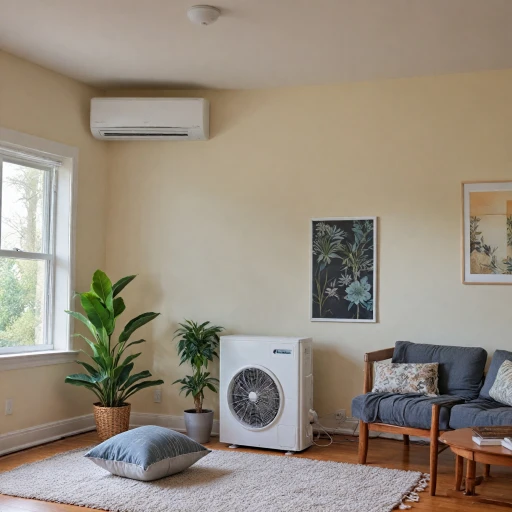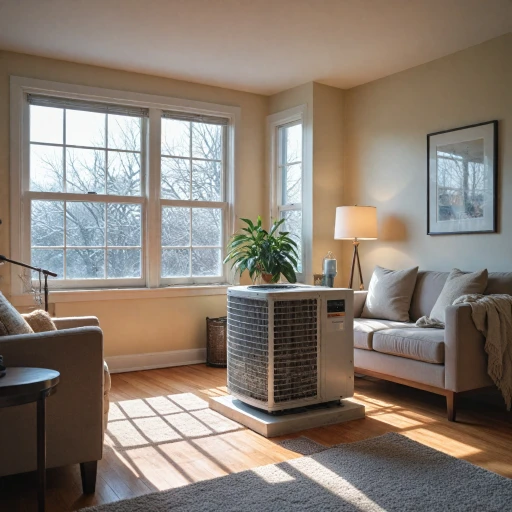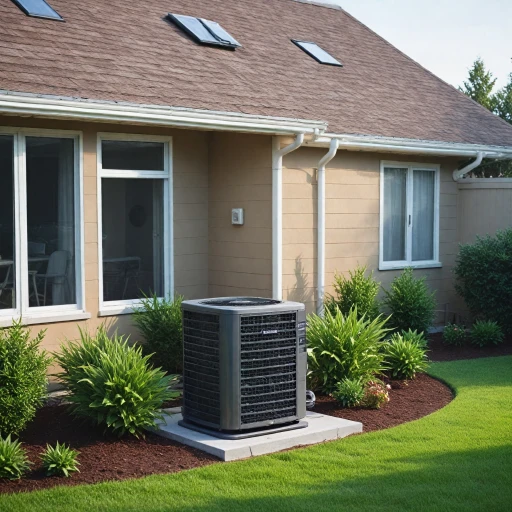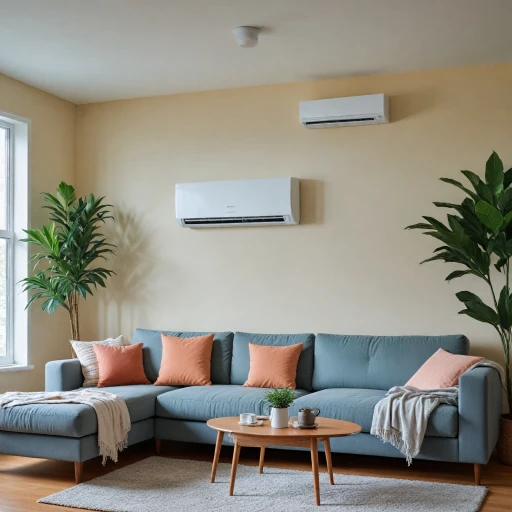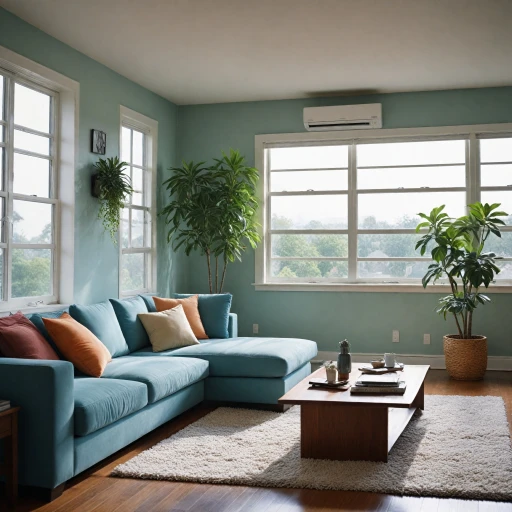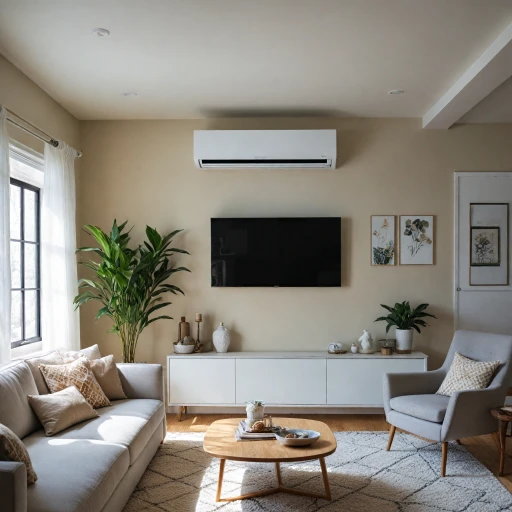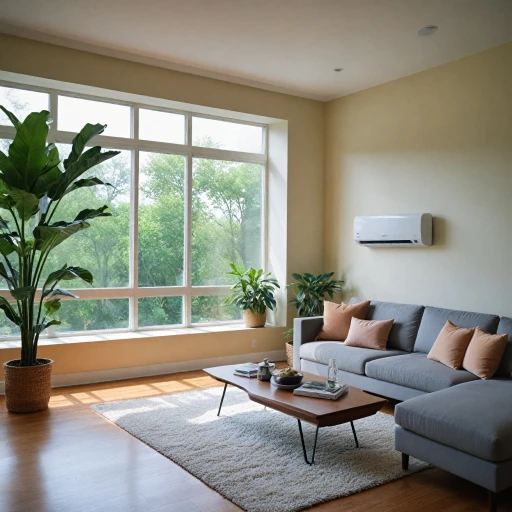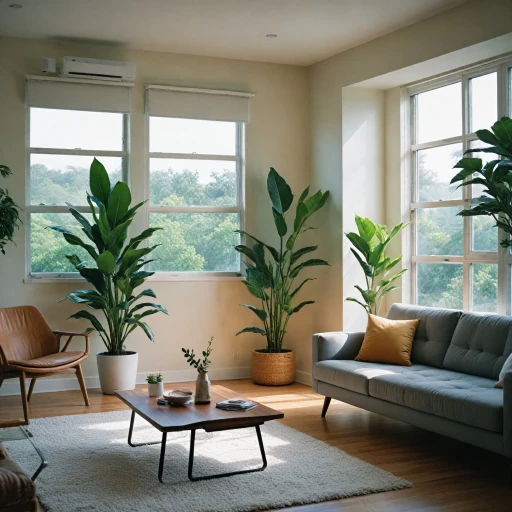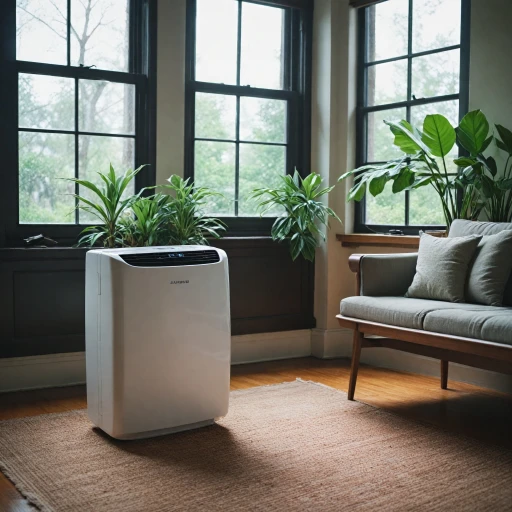
Understanding Portable Air Conditioners
Unpacking the Versatility of Portable Air Conditioning
When it comes to cooling needs, portable air conditioners have become an attractive option for many, offering flexibility and convenience. Unlike their wall-mounted counterparts, portable units can be moved from room to room, which is ideal for those who desire localized air conditioning without a permanent installation.
These appliances come in various BTU capacities, ensuring that they can efficiently cool different room sizes. A BTU smart portable air conditioner can adjust its cooling power based on the room's needs, potentially saving energy.
The units often come with various fan speeds and remote control options for easy operation. Additionally, they typically require no dedicated wall or window space, allowing them to serve as a versatile cooling option particularly beneficial if window or ductless mini split systems are not feasible.
Moreover, some top brands like Frigidaire offer portable air conditioners with features such as energy star ratings, which help reduce electricity consumption, translating to cost savings over time.
For those researching options, it's crucial to weigh these portable units against wall-mounted or mini split systems to better understand the benefits of each type. It's all about finding a solution that fits your specific cooling requirements and budgetary constraints.
Comparing Wall-Mounted and Portable Air Conditioners
Differences in Features and Functionality
When deciding between wall-mounted and portable air conditioners, it's crucial to understand the distinctions in features and functionality. Portable units are prized for their convenience and flexibility; they can be easily moved from room to room, making them ideal for temporary cooling solutions. Wall-mounted models, such as ductless mini splits, provide a more permanent installation, offering a sleek, unobtrusive setup suitable for homes or offices. Portable air conditioners generally use a hose to vent warm air through a window, whereas wall-mounted units do not require window access, freeing up space for your view. Additionally, some wall-mounted conditioners come with advanced inverter technology that can significantly save energy costs by optimizing power usage based on room conditions.Performance and Energy Efficiency
Energy efficiency is another critical factor. Wall-mounted air conditioners typically have higher SEER ratings, indicating better efficiency, hence lower operational costs over time. Energy Star ratings are commonly found in advanced models, reflecting their superior performance in btu management and energy conservation. Portable models, although generally less energy efficient, can effectively cool specific areas without the need for a complex installation process. They often feature multiple fan speeds and remote control operation, ensuring a personalized cooling experience. Consider the btu requirements of the room to select the appropriate model that balances energy use and cooling capacity.Cost Considerations
The price of portable air conditioners is generally lower than their wall-mounted counterparts, making them accessible for homeowners looking for immediate relief from summer heat. However, while the initial investment in a wall-mounted system, like a ductless mini split, might be higher, the potential savings in energy costs could justify the expense over time. If free shipping or promotional offers are available, it could further reduce the overall price of acquisition. For more detailed comparisons, including benefits of specific ductless systems, visit this comprehensive resource on ductless mini split systems.Installation Considerations for Portable Units
Deciding on Placement and Installation Requirements
When it comes to portable air conditioners, installation is a breeze compared to their wall-mounted counterparts. However, there are a few key considerations to keep in mind to ensure you get the most efficiency and comfort out of your unit. Firstly, portable air conditioners need to be placed near a window for effective ventilation. This is because these units work by extracting warm air from the room and expelling it outside. If there isn't suitable window access, you could face issues with your air conditioner's performance. Most units come with a window kit designed to seal the window opening where the exhaust hose is placed. This installation approach minimizes the exchange of external hot air, allowing the unit to cool more effectively. Remember, keeping your air conditioner in a shaded area will help it run more efficiently, ultimately saving energy. Additionally, consider the heat pump technologies used in some higher-end portable units. These allow for heating in colder months, adding versatility. Space is another consideration. Portable units can typically handle a room's cooling needs up to a certain size, measured in BTUs per hour. Check the unit's BTU rating to ensure it matches your room size. Also, take note of the SEER (Seasonal Energy Efficiency Ratio) rating which indicates the unit's efficiency. Investing in a model with an Energy Star rating may have a higher initial cost but can save energy and operating costs in the long run. Lastly, most portable air conditioners also act as dehumidifiers, but you'll want to ensure they have appropriate drainage options, especially if your room tends to be more humid. With the right considerations, choosing a portable air conditioner can be a straightforward and cost-effective way to comfort your living space without the extensive installation and permanent commitment that wall-mounted systems often require.Energy Efficiency and Cost Implications
Energy Consumption and Cost Considerations
When it comes to energy efficiency, portable air conditioners present distinct advantages and challenges compared to wall-mounted units. Knowing your energy needs and costs can significantly affect your air conditioning choices. For starters, portable air conditioners are generally associated with higher energy consumption per BTU when compared to equivalent wall-mounted devices. This is primarily due to their lower Seer ratings, as these units often lack the energy efficiency features found in ductless mini-split systems or inverter technology. Nevertheless, there are ENERGY STAR-certified models that help optimize energy usage, though they might come with a higher price tag. One crucial advantage of portable air conditioners is their flexible deployment in different rooms, allowing you to save energy by cooling only occupied spaces. This can be particularly beneficial in smaller living areas or during off-season periods. Additionally, some models offer variable fan speeds and cooling settings via remote control, providing greater control over energy consumption. In terms of costs, the initial price of portable air conditioners typically tends to be lower than wall-mounted units. However, it's essential to calculate the long-term energy expenses, as the frequent shifts in power consumption can add up over time, making them possibly less cost-effective than more efficient alternatives like ductless mini-split systems. Lastly, taking into account your specific needs, including occasional cooling requirements or the ability to move the unit between rooms, can help justify the rationale between upfront costs and long-term savings. By strategically leveraging these features, you can maintain an energy-efficient home environment while keeping costs manageable. Remember to explore a range of options before settling on the perfect air conditioning unit, considering both energy implications and overall comfort and convenience.Maintenance Tips for Portable Air Conditioners
Essential Maintenance Tips for Optimal Performance
Maintaining your portable air conditioner is crucial to ensuring its performance remains top-notch. A well-maintained unit not only increases efficiency but also extends the unit's lifespan and could save energy, resulting in reduced costs. Below are some essential tips for maintaining these versatile air conditioners:
- Regularly Clean or Replace the Filters: One of the easiest yet most effective maintenance tasks is to clean or replace the air conditioner's filters. Clogged or dirty filters can reduce airflow and efficiency, forcing the unit to work harder, which can increase energy consumption. Cleaning or replacing filters regularly helps you clean air and better btu efficiency.
- Check and Clean the Evaporator Coils: Even with a clean filter, the evaporator coils may collect dirt. This dirt reduces airflow and minimizes the coil's ability to absorb heat. Check coils for dirt buildup and clean them as needed to maintain the unit's cooling capabilities.
- Inspect the Thermostat: Ensure your thermostat is functioning correctly to provide accurate temperature control. An inaccurate thermostat can lead to unnecessary power usage, affecting the unit's energy star qualifications.
- Examine the Unit's Ductwork and Seals: For any ducted portable units, check the condition of the ductwork for leaks or damage that can impact efficiency. Also, make sure that seals around window panes or walls are in good condition to prevent air from escaping.
- Keep the Area Around the Unit Clear: Ensure there is at least 20 inches of clear space around the unit to ensure it gets the proper airflow. An obstructed unit must work harder to cool the room, which can increase energy usage.
- Test the Unit's Double Fan Speeds: Verify that the fan operates at both its high and low speeds effectively. For units with remote control operation, ensure the remote functions properly for effortless control over settings.
Neglecting these maintenance aspects can quickly turn your efficient energy star system into an energy-guzzling device. Taking the time to follow these tips will ensure that your portable air conditioner operates at its best, providing comfortable room cooling at an optimal price all season long.
Choosing the Right Air Conditioner for Your Needs
Finding the Perfect Fit for Your Space
Choosing the right air conditioner requires careful evaluation of your specific needs and the characteristics of your space. Whether you're considering a portable unit or a wall-mounted option, understanding key factors can make your decision more effective.- Room Size and BTU: The space you desire to cool is a primary determinant in selecting the suitable model. Portable air conditioners often vary in BTU output, influencing their cooling capacity. Ensure that the unit you choose can effectively handle the room size and provide enough cooling without overexertion, leading to energy waste.
- Energy Efficiency Considerations: Opt for models that are energy efficient to save on utility bills. Products with an Energy Star label or featuring inverter technologies can help reduce consumption, particularly in higher demand periods. Understanding the energy efficiency ratio (EER) and SEER ratings of your prospective unit can guide you in choosing an economically sound option.
- Functional Needs: Consider whether additional features like remote control, multiple fan speeds, or a heat pump system are essential for your comfort. Wall-mounted conditioners like mini split systems allow more control and often come with extra features compared to portable units.
- Installation and Mobility: Assess your installation preferences. Portable air conditioners are known for their ease of installation, often requiring only a window kit and minimal setup effort. In contrast, ductless mini systems may offer a more permanent solution for larger areas but require professional installation.
- Budget and Long-term Costs: Factor in both the immediate price of the air conditioner and potential long-term costs. While initially more affordable, portable air conditioners may incur higher operation costs compared to Energy Star certified wall models.

